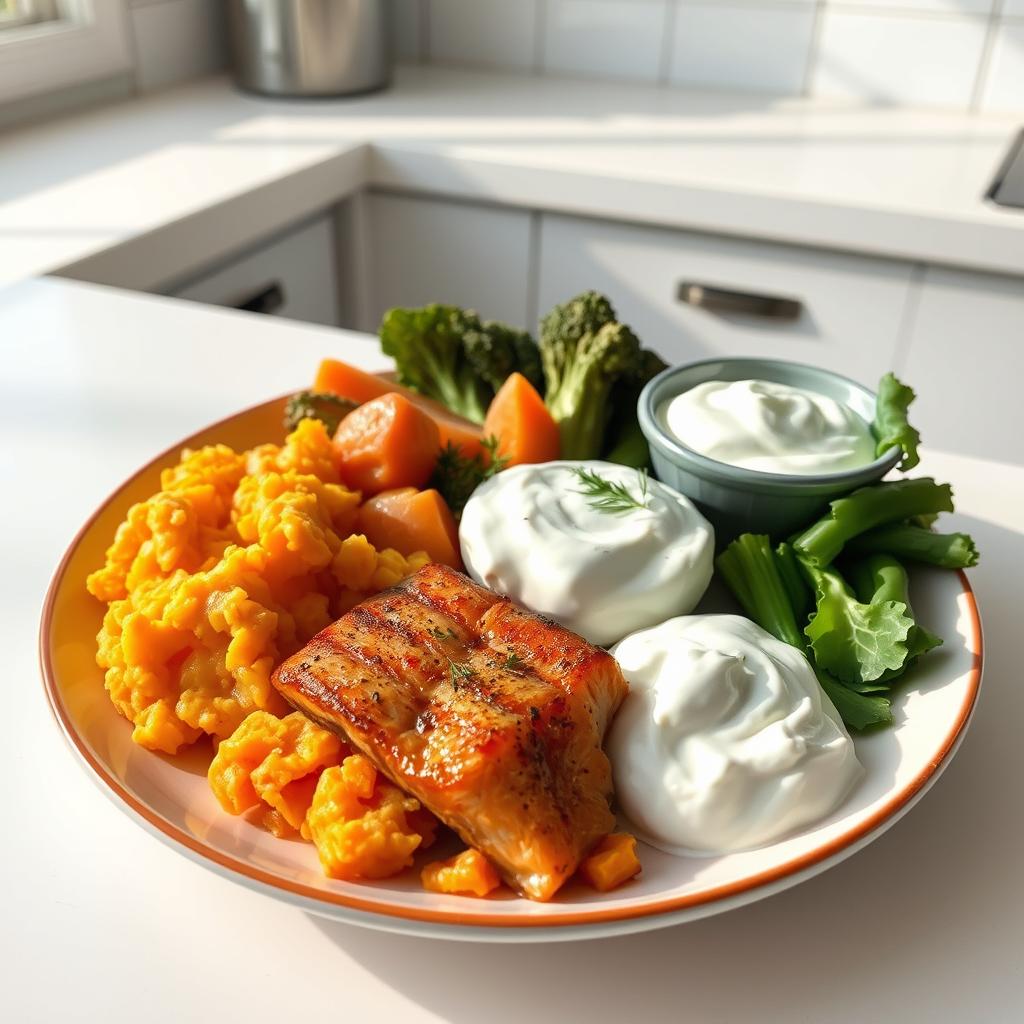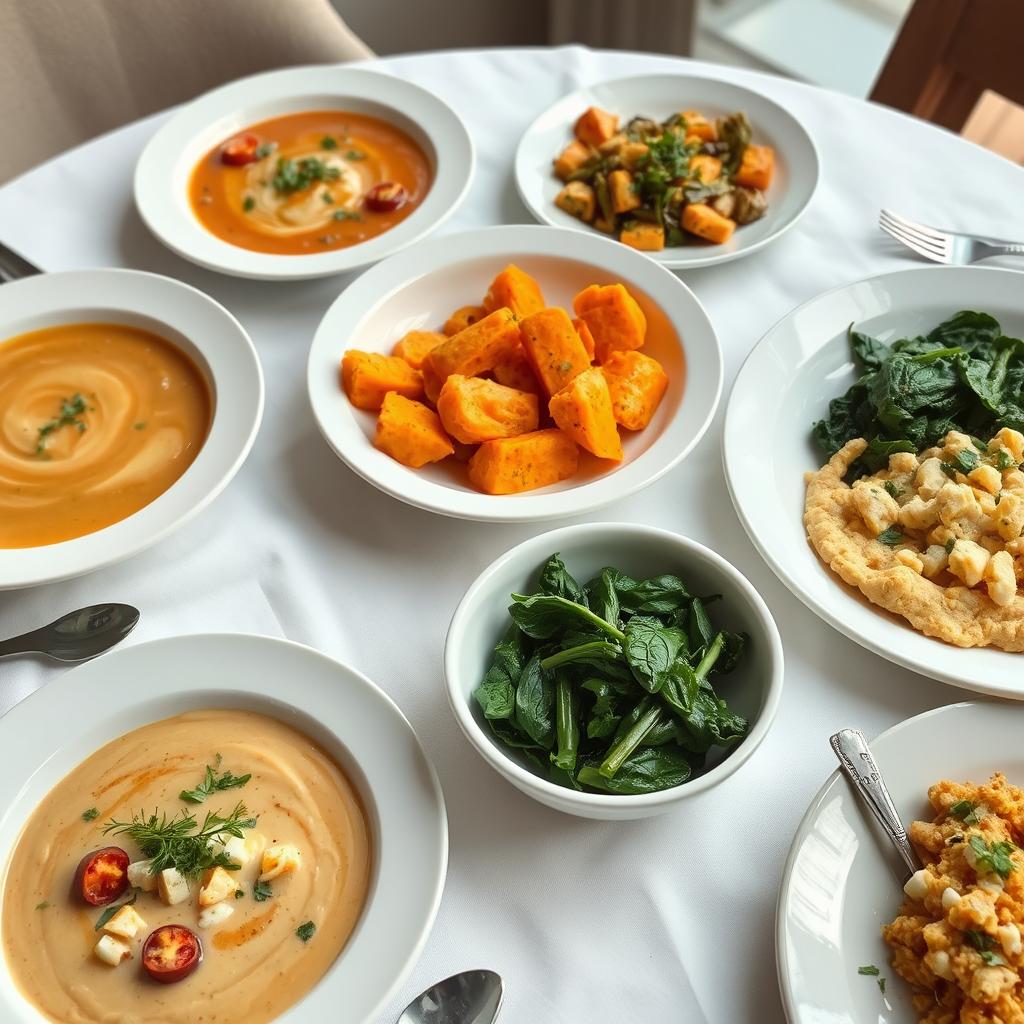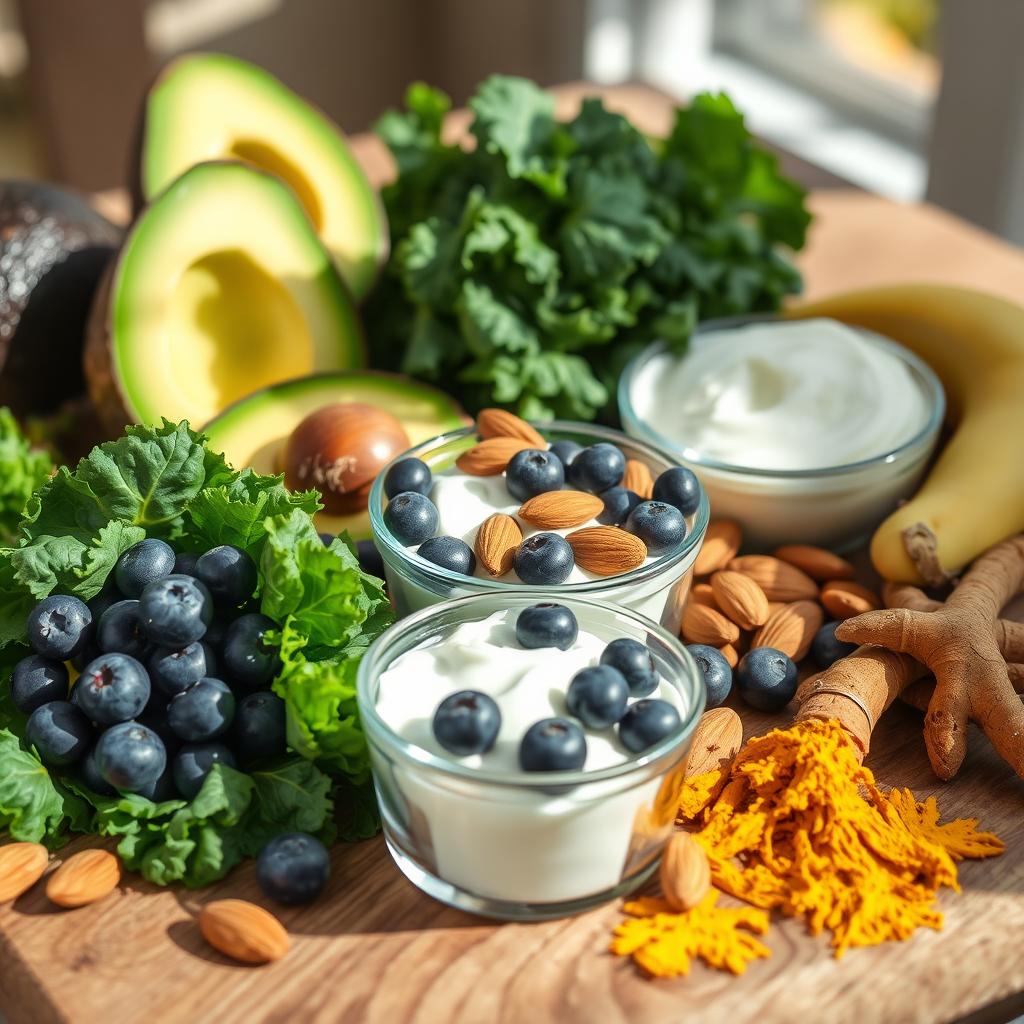A gastrointestinal soft diet is designed to provide nourishment while being gentle on your digestive system. It’s particularly helpful for individuals recovering from surgery, managing conditions like GERD or esophagitis, or simply seeking digestive comfort. By incorporating foods that are easy to chew, swallow, and digest, this diet minimizes irritation to the stomach and intestines, allowing the body to focus on healing.
So, what can you eat on a gastrointestinal soft diet? Here’s a quick food list to guide you:
- Dairy: Yogurt, milkshakes, and low fat pudding.
- Proteins: Scrambled eggs, soft fish, or tender, shredded chicken.
- Soups and Broths: Clear broths, blended vegetable soups, or mild chicken noodle soup.
- Fruits and Vegetables: Stewed apples, bananas, cooked carrots, or peas.
This type of diet not only soothes your digestive tract but also helps replenish vital nutrients. By choosing soft yet nutrient dense foods, you’re doing your gut a favor. Have you tried incorporating these meals into your routine yet?
Gastrointestinal Soft Diet Food List for Digestive Wellness
Whether you’re recovering from surgery, managing a condition like GERD, or simply aiming to improve gut health, choosing the right foods can make all the difference. A gastrointestinal soft diet supports your digestive system by focusing on options that are gentle on the stomach, easy to swallow, and packed with essential nutrients. Ready to dive into what you can (and should avoid) eating?
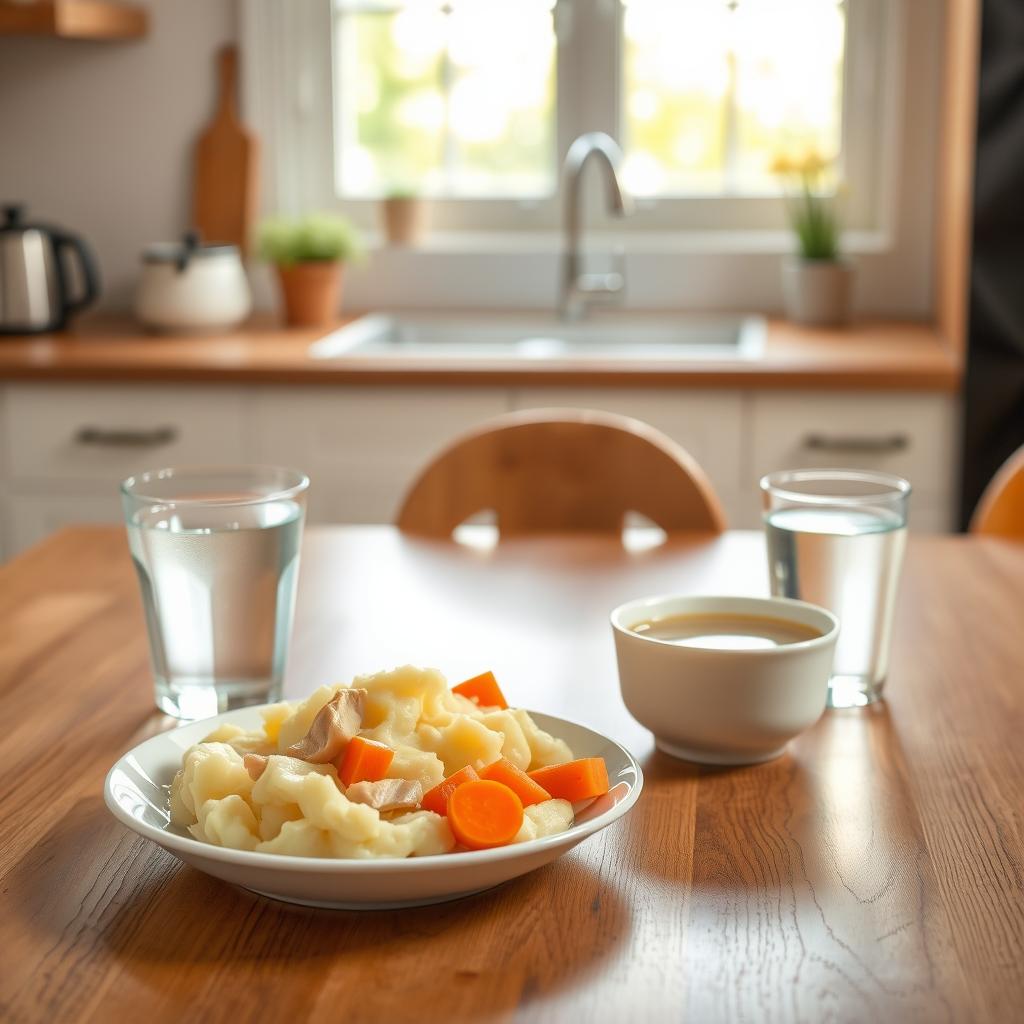
Approved Foods That Are Gentle on the Stomach
- Low fat dairy: Milkshakes, yogurt (preferably plain or low sugar), and soft cheeses provide smooth textures and digestible proteins.
- Soft proteins: Scrambled eggs, poached fish, and tender chicken are excellent sources of nutrition without being overly taxing on the stomach.
- Pureed vegetables: Carrots, squash, and sweet potatoes steamed or boiled offer fiber in a gentle form that’s easy to digest.
- Soups and broths: Chicken broth, vegetable soup, and blended lentil soups are hydrating, nutrient rich, and simple for your body to process.
- Soft grains: Oatmeal, semolina, and well cooked rice provide energy while going light on your stomach.
- Fruits without skins: Bananas, applesauce, and mashed pears boast natural sweetness and are highly tummy friendly.
Foods to Avoid for Better Digestive Health
Just as you need to focus on gentle options, steering clear of irritating foods is equally important:
- Spicy foods like chili peppers or hot sauces can aggravate the stomach lining.
- High fat and fried foods such as heavy creamy dishes or fast food may worsen digestive discomfort.
- Raw vegetables like broccoli, cauliflower, or cabbage might cause bloating and irritation.
- Acidic fruits, including oranges and tomatoes, can trigger reflux or stomach pain.
- Carbonated beverages or caffeine heavy drinks may heighten digestive sensitivity.
Nutritional Benefits of Soft Diet Choices
Soft diets aren’t just easy on your gut they’re nutritional powerhouses when chosen wisely. By focusing on foods rich in vitamins, minerals, and lean proteins, you enable your body to heal and restore itself. For instance, soups offer hydration and electrolytes, while fruits like bananas deliver potassium essential for digestive balance. Additionally, incorporating oatmeal or pureed veggies ensures you get fiber that nurtures your gut microbiome all without the discomfort associated with tougher or fibrous food options.
Feeling inspired to give your digestive system the TLC it deserves? Embracing a gastrointestinal soft diet is a small yet transformative step to promote healing and overall wellness.
Easy and Healthy Gastrointestinal Soft Diet Recipes
Breakfast Recipes for Soft Diet Digestion
Starting your day with breakfast that’s easy on the stomach doesn’t mean compromising on flavor. Here are a few ideas to fuel your morning with nutrition while keeping digestion smooth:
- Banana Oatmeal: Cook oats until soft and creamy, then mash a ripe banana to mix in. Add a pinch of cinnamon for extra warmth it’s gentle on sensitive tummies.
- Scrambled Eggs: Rich in protein and super soft, scrambled eggs are a go to option. Pair them with a slice of soft whole wheat bread for added fiber and texture.
- Yogurt and Honey: If you’re looking for a probiotic boost, combine plain Greek yogurt with a drizzle of honey. Optional: blend in a spoonful of soft, mashed ripe blueberries for an antioxidant punch.
- poached egg: This classic is not only gentle on digestion but also packs healthy protein to start the day right.
Light Lunch Ideas That Promote Gut Health
Lunchtime doesn’t have to be heavy to be satisfying. These light meals are both nourishing and easy on your digestive system:
- Chicken and Vegetable Soup: Slow cooked chicken with soft vegetables like carrots and zucchini offers flavor, hydration, and essential nutrients.
- Mashed Sweet Potato Bowl: Steam sweet potatoes and mash them into a creamy consistency. Sprinkle with a touch of nutmeg or mild herbs for gentle flavor.
- Blended Lentil Soup: Lentils are packed with fiber, but blending the soup makes them easier to digest. Add a pinch of turmeric for its potential anti inflammatory benefits.
Dinner Recipes for Easy Recovery Meals
Dinner is the time to wind down with meals that ease digestive stress while being hearty enough for recovery:
- Baked Cod with Steamed Rice: A soft textured fish like cod paired with plain steamed rice makes for a soothing combination.
- Pureed Carrot and Ginger Soup: Carrots provide a gentle source of fiber, while ginger may aid in calming digestion. Serve this warm soup with a slice of soft, toasted bread.
- Soft Pasta with Olive Oil and Herbs: Skip the tomato heavy sauces and opt for plain, soft pasta tossed with olive oil, a little garlic, and finely chopped parsley or basil.
Snack and Smoothie Ideas for Extra Nutrition
Snacks and smoothies are perfect opportunities for boosting your nutrient intake without stressing your gut. Try these options:
- Cottage Cheese with Soft Peaches: The mild flavor and creaminess of cottage cheese combined with tender, lightly mashed peaches offer a soothing protein rich snack.
- Avocado Puree: Mash an avocado and spread on soft crackers for a quick, digestive friendly treat.
- BerryBanana Smoothie: Blend ripe bananas, soft berries, and lactose free milk or almond milk into a creamy smoothie. This combo is gut friendly and packed with antioxidants.
How Gastrointestinal Soft Diet Recipes Support Healing
Did you know the foods you eat can be a crucial ally in your journey toward digestive wellness? Soft diets, often recommended for post surgery recovery or managing conditions like IBS, gastritis, or GERD, play a unique role in soothing and healing your gastrointestinal system. These diets focus on gentle, easy to digest foods that reduce strain on your digestive tract while still delivering essential nutrients your body needs to recover.
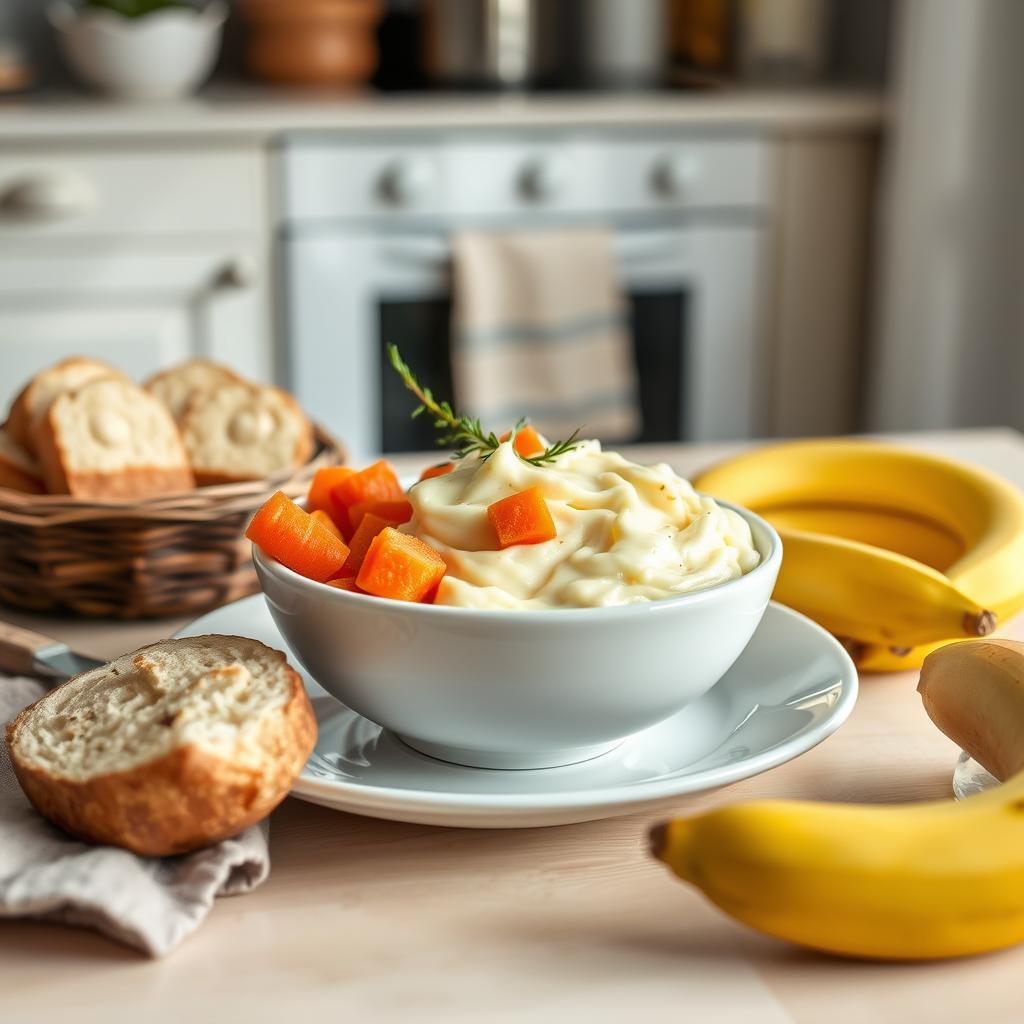
Why Soft Foods Are Essential During Recovery
After surgery, your digestive system is often more sensitive, requiring care to avoid irritation. This is where soft foods shine. They allow your gut to rest and repair by minimizing mechanical digestion, while also preventing discomfort like bloating or reflux. For starters, try options like:
- Scrambled eggs: Packed with protein and incredibly gentle on the stomach.
- Broths and soups: Hydration and nutrients in one comforting bowl.
- Mashed fruits and vegetables: Easy to ingest while supporting much needed vitamins and minerals.
Benefits for IBS, Gastritis, and Other Conditions
If you’re managing IBS or gastritis, soft foods can reduce irritation and inflammation often caused by tougher, fiber heavy options. By swapping raw, fibrous veggies for cooked, pureed alternatives, you can still reap the benefits of fiber without triggering discomfort. Ingredients like oatmeal, bananas, and sweet potatoes are perfect pantry staples that balance gut health while being kind to sensitive systems.
The Connection Between Soft Foods and Digestive Comfort
Soft food diets prioritize balance not just in nutrition, but in comfort. Eating slowly, choosing easily digestible meals, and spacing out smaller portions helps your digestive tract handle food with ease, minimizing issues like reflux commonly triggered by heavier options. Think of soft foods as an act of self care for your digestive system a reset button to improve how your body processes and absorbs nutrients.
When crafting your gastrointestinal soft diet food list, focus on foods that nurture your body without overwhelming it. Whether you’re healing or simply seeking better gut health, a well curated soft diet can make all the difference.
Tips for Living Healthy on a Gastrointestinal Soft Diet
Transitioning to a gastrointestinal soft diet can be a challenging adjustment, but it doesn’t have to mean sacrificing nutrition or flavor. The key lies in striking the right balance nurturing your digestive health while still meeting your body’s essential nutritional needs. Let’s explore practical tips to help you live healthily on a soft diet and avoid common pitfalls.
Balancing Nutrients Without Heavy Foods
Soft diets often lean toward easily digestible options like soups, scrambled eggs, and milkshakes. However, these staples may lack crucial nutrients like protein or vitamins if not carefully chosen. Think beyond the basics! Blend soft fruits such as bananas and peaches into smoothies packed with protein powder or Greek yogurt. Creamy soups made with pureed vegetables and low fat chicken can be another source of nourishment without overloading your digestive system.
Hydration and Digestive Smoothness
Hydration plays a vital role in keeping digestion smooth, especially on a soft diet that may not offer enough fiber rich choices. Sip on liquids throughout the day but go beyond plain water. Herbal teas, broth based soups, or electrolyte enhanced drinks can replenish your minerals. Fiber rich soft options like oatmeal, avocados, or pureed legumes can also keep you regular, but remember to introduce fiber gradually if your system needs time to adjust.
Pro Tips for Safe Transitioning
When it’s time to move off the soft diet, doing so slowly can prevent setbacks. Incorporate solid foods in small quantities and prioritize gentle, low fat options. Here’s a simple roadmap to ease the process:
- Start Small: Begin with semi soft foods like steamed vegetables or mashed potatoes. Test your tolerance before adding more texture.
- Advance Gradually: Introduce lean proteins, such as baked chicken or fish, while watching for any digestive discomfort.
- Monitor Hydration: Keep up with fluids to support digestion as your food choices expand.
- Listen to Your Body: Pay attention to how new foods impact your gastrointestinal health and make adjustments as needed.
Don’t rush this process. Your gut deserves patience and care as it reacquaints itself with regular foods. By following these tips, sticking to your gastrointestinal soft diet becomes less intimidating, paving the way for digestive wellness while keeping you nourished.
Variations and Customization of Soft Diet Recipes
Vegetarian and Vegan Soft Diet Options
For those following a plant based lifestyle, soft diet meals can be rich in both flavor and nutrition. Focus on ingredients that are naturally soft or can easily be pureed, such as mashed sweet potatoes, avocado, or creamy butternut squash soup. Silken tofu is a versatile protein source that blends seamlessly into smoothies or can be incorporated into lightly seasoned broths for a soothing, nutritious meal. Nut butters, when thinned with water or almond milk, can also bring a boost of healthy fats to your diet. To amp up the taste, experiment with gentle seasonings like cinnamon, turmeric, or dill these add subtle depth without overwhelming your sensitive digestive system.
Low Fat and Gluten Free Adjustments
For those prioritizing low fat or gluten free options, small tweaks can make all the difference. Opt for clear broths instead of creamy sauces and use yogurt or kefir as substitutes for heavier ingredients like cream. For gluten free soft foods, swap traditional noodles for rice noodles or quinoa, which can be cooked until extra soft. Puddings made from almond or oat milk are a fun, gluten free dessert option that fits a soft diet. To help with planning, here’s a quick reference table of soft diet ingredients and their suitability across common dietary needs:
| Food | Vegetarian/Vegan | Low Fat | Gluten Free |
|---|---|---|---|
| Mashed Sweet Potatoes | Yes | Yes | Yes |
| Silken Tofu | Yes (Vegan) | Yes | Yes |
| Rice Noodles | Yes | Yes | Yes |
| Low Fat Yogurt | No (Non Vegan) | Yes | Yes |
Making Soft Diet Meals Enjoyable
If you’re worried about monotony, there’s no need to be! Herbs and non spicy seasonings can transform bland ingredients into exciting dishes. For sweetness, puree ripe fruits like bananas or mangoes delicious on their own or atop oatmeal. If you’re recovering from diarrhea or need an easily digestible option, the brat diet may provide valuable inspiration, with its simple, gut friendly foods like bananas and rice. Ultimately, the key to a successful soft diet is flexibility. By embracing creativity and tailoring meals to your specific dietary needs, you can turn even the simplest recipes into delights for your taste buds while supporting your digestive wellness.
Meal Planning with Gastrointestinal Soft Diet Food List Recipes
Planning meals when you’re on a gastrointestinal soft diet doesn’t have to feel overwhelming. With a little forethought, you can whip up easy to digest dishes that are both nourishing and satisfying. Ready to make your week a little less stressful? Let’s dig into some practical tips for meal prep, portion control, and crafting the ultimate grocery list for your soft diet.
Weekly Meal Prep Tips for Easy Living
Ever felt like you spend too much time standing in the kitchen? By dedicating just one or two hours a week to prep, you can set yourself up for success. Chop, blend, and cook in batches, so you always have soft, easy to eat meals on hand. Soups, broths, and pureed options freeze beautifully, and reheating is a breeze.
Looking for time saving options? Try rotating a few staple recipes. For instance, a creamy potato soup can double as a base for adding other soft veggies like carrots or squash. Variety doesn’t have to complicate things a little creativity can go a long way!
Portion Control and Balanced Meals
Did you know that smaller portions not only align with soft diet recommendations but also reduce digestive strain? Aim to fill your plate with just enough for one sitting to prevent overeating. Balance is key. A typical soft diet plate might include:
- Protein: Scrambled eggs, soft poached chicken, or blended lentil soup.
- Carbohydrates: Mashed potatoes, oatmeal, or well cooked pasta.
- Fats: A dollop of avocado, soft cheese, or a drizzle of olive oil.
- Fruits and Vegetables: Stewed apples, pureed carrots, or blended spinach.
Best Grocery List for a Healthy Soft Diet
Shopping smart is the cornerstone of meal planning success. Need ideas to stock your pantry and fridge? Here’s a quick grocery list to get you started:
- Proteins: Eggs, boneless fish, ground turkey, lentils.
- Dairy: Greek yogurt, low fat milk, cottage cheese.
- Vegetables: Sweet potatoes, zucchini, carrots (cooked and blended).
- Fruits: Bananas, canned peaches (in juice), applesauce.
- Additional Staples: Broths, soups, oats, white rice.
By tailoring every item on this list to your needs, you’ll feel confident knowing mealtime will be smooth not to mention delicious.
So, what’s stopping you from getting started? A little prep goes a long way on a gastrointestinal soft diet, making your journey to digestive wellness totally achievable!
Have you ever wondered how a tailored approach to nutrition can transform digestive wellness? Whether you’re recovering from surgery or managing a chronic condition, embracing a carefully designed soft food diet can offer relief and long term benefits for your gut health. A soft food diet is perfect for those looking to soothe their digestive system while maintaining essential nutrition. Here are some standout benefits and ideas to personalize your meals:
- Digestive Comfort: Foods like scrambled eggs, pureed vegetables, and broths are gentle on sensitive stomachs and help prevent irritation.
- Sustainable Energy: Blended fruits and smoothies provide natural sugars and vitamins for consistent energy levels during recovery.
- Flexibility: The diet can be tailored with your favorite ingredients, ensuring every bite is both nutritious and enjoyable.
Don’t forget to experiment with seasonings and different textures to keep your meals exciting while promoting gut wellness. Small changes can lead to big results for digestive health!

